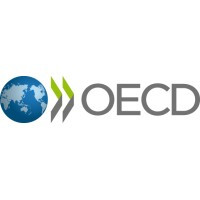
Organisation for Economic Co-operation and Development (OECD)
Organisation de coopération et de développement économiques (OCDE)
Search Open Yearbook
This information is part of the Open Yearbook, a free service of UIA's subscription-based Yearbook of International Organizations (YBIO). It includes profiles of non-profit organizations working worldwide in all fields of activity. The information contained in the profiles and search functionality of this free service are limited.
The full-featured Yearbook of International Organizations (YBIO) includes over 72,500 organization profiles, additional information in the profiles, sophisticated search functionality and data export. For more information about YBIO, please click here or contact us.
The UIA is a leading provider of information about international non-profit organizations. The aim of the Open Yearbook is to promote the activities of international non-governmental organizations (INGOs) and intergovernmental organizations (IGOs).
Contact Details
URL: https://www.oecd.org/
LinkedIn: https://www.linkedin.com/company/organisation-eco-cooperation-development-organisation-cooperation-developpement-eco
Youtube: https://www.youtube.com/oecd
RSS Feed: https://www.oecd.org/rssfeeds/
Facebook: https://www.facebook.com/theOECD
Founded
1961-09-30 Paris France
History
Established by 'Convention on the Organisation for Economic Cooperation and Development -- Convention relative à l'Organisation de coopération et de développement économiques', signed 14 Dec 1960. Successor body to H-XH7171 - Organization for European Economic Cooperation (OEEC), set up 16 Apr 1948, Paris, in connection with the 'Marshall Plan'.
Aims
Help governments foster prosperity and fight poverty through economic growth and financial stability; help ensure that environmental implications of economic and social development are taken into account.
Events
955 past events available with paid subscription only.Activities
Available with paid subscription only.Structure
Council (decision-making body), comprising one representative from each member country, plus a representative of the European Commission. Executive Committee. General Secretariat, includes: International Futures Programme; Council and Executive Committee Secretariat; Directorate for Legal Affairs; Global Relations Secretariat; Internal Audit and Evaluation. Executive Directorate; Public Affairs and Communications Directorate. Departments (12): Development Co-operation Directorate; Economics Department; Directorate for Education and Skills; Directorate for Employment, Labour and Social Affairs; Centre for Entrepreneurship, SMEs and Local Development; Environment Directorate; Directorate for Financial and Enterprise Affairs; Public Governance and Territorial Development Directorate; Directorate for Science, Technology and Industry; Statistics Directorate; Centre for Tax Policy and Administration; Trade and Agriculture Directorate. Committees, working groups and expert groups (about 250 in total). Centres (4): Berlin (Germany); Mexico City (Mexico); Tokyo (Japan); Washington DC (USA). Special bodies: E-XM3547 - Africa Partnership Forum (APF); E-XE7985 - OECD Development Centre; F-XF3051 - Financial Action Task Force (FATF); E-XE5314 - International Energy Agency (IEA); F-XD0695 - International Transport Forum (ITF); E-XE0816 - Nuclear Energy Agency (NEA); F-XF6027 - Sahel and West Africa Club (SWAC).
Languages
Available with paid subscription only.Staff
Available with paid subscription only.Annual Budget
Available with paid subscription only.Finance
Available with paid subscription only.Relations with Inter-Governmental Organizations
Available with paid subscription only.Relations with Non-Governmental Organizations
Available with paid subscription only.Publications
Available with paid subscription only.Members
Available with paid subscription only.Type I Classification
Available with paid subscription only.Type II Classification
Available with paid subscription only.Subjects *
Available with paid subscription only.UN Sustainable Development Goals **
UIA Org ID
XC3023
** UN SDGs are linked to the subject classification.
← return to your search page to find additional profiles.
UIA allows users to access and make use of the information contained in its Databases for the user’s internal use and evaluation purposes only. A user may not re-package, compile, re-distribute or re-use any or all of the UIA Databases or the data* contained therein without prior permission from the UIA.
Data from database resources may not be extracted or downloaded in bulk using automated scripts or other external software tools not provided within the database resources themselves. If your research project or use of a database resource will involve the extraction of large amounts of text or data from a database resource, please contact us for a customized solution.
UIA reserves the right to block access for abusive use of the Database.
* Data shall mean any data and information available in the Database including but not limited to: raw data, numbers, images, names and contact information, logos, text, keywords, and links.